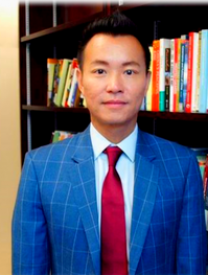Each year, the CSCC invites leading experts to Penn to present their research and share their knowledge about contemporary China. Typically scheduled for Wednesday afternoons 4:30-6 pm, speakers will deliver their remarks and then entertain questions from the audience. Attendance is open to the entire Penn community. Announcements about upcoming talks will be posted on the CSCC website and disseminated via the Center’s listserv. To be added to the listserv, please visit our signup page https://groups.sas.upenn.edu/mailman/listinfo/cscc-announce.
Past Speaker Series
Public Assembly via Affective Technologies: Like Buttons, Sentiment Analysis, and the Transmission of Positive Energy
Angela Wu, Assistant Professor of Media, Culture, and Communication, New York University
Please register at: …
Maximizing Leverage: China’s Strategic Force Posture Choices in the Information Age
China and International Relations Series
Fiona Cunningham, Assistant Professor of Political Science and International Affairs, George Washington University
Co-sponsored with the Browne Center for International Politics.
(Please respond to yuanzeng@upenn.edu to receive Zoom link)
…
The Law and Politics of Transnational War Reparations in Contemporary China
Timothy Webster, Associate Professor of Law, Western New England University
Please register to receive Zoom login at: https://www.…
China's Urban Champions: The Politics of Spatial Development
Kyle Jaros, Associate Professor of Political Economy, University of Oxford
The rise of major metropolises across China since the 1990s has been a double-edged sword: although big cities function as economic powerhouses, concentrated urban growth can worsen regional inequalities, governance…
Disenfranchised: The Rise and Fall of Industrial Citizenship in China
Joel Andreas, Associate Professor of Sociology, Johns Hopkins University
In this book talk, Professor Andreas recounts the tumultuous events that have shaped and reshaped authority relations in Chinese factories over the past seven decades. He introduces a general theoretical framework, …
2019 CHINA Town Hall
National Committee on U.S.-China Relations
Join communities across the United States in a national conversation on China. Featuring an interactive national webcast panel at 6pm moderated by George Stephanopoulos, joined by expert panelists …
Asymmetrical Neighbors: Borderland State Building between China and Southeast Asia
Enze Han, Associate Professor, Department of Politics and Public Administration, University of Hong Kong
Is the process of state building a unilateral, national venture, or is it something more collaborative, taking place in the interstices between adjoining countries? To answer this question, this book takes a…
Paper Tigers, Hidden Dragons: Firms and the Political Economy of China's Technological Development
Judith and Marshall Meyer Lectures on China’s Economy
Douglas Fuller, Associate Professor of International Studies, City University of Hong Kong
China presents us with a conundrum. How has a developing country with a spectacularly inefficient financial system…
U.S. China Trade Dispute: Politics, Not Policy
Penn Global China Policy Dialogues
Craig Allen, President, US-China Business Council
Co-sponsored by Penn Global, Penn Wharton China Center, and Center for East Asian Studies.
Why China Should Unsign the International Covenant on Civil and Political Rights
Margaret Lewis, Professor of Law, Seton Hall University
Professor Margaret Lewis’s research focuses on law in China and Taiwan with an emphasis on criminal justice and human rights.
Professor Lewis has been a Fulbright Senior Scholar at National Taiwan University…








